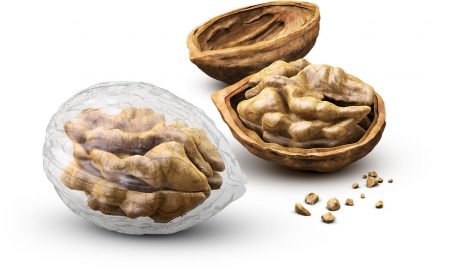June 18, 2018 – TIPA Sustainable Packaging is an Israel-based company founded in 2010 to tackle the problem of plastic waste. Inventors Daphna Nissenbaum and Tal Neuman wanted to create compostable packaging with the same capability of plastic packaging currently in use throughout much of the world.
With two-thirds of plastic waste coming from food and beverage packaging, Nissenbaum and Neuman decided to focus on a replacement for existing polyethylene films made from plastic polymers by finding materials that could serve the same function but without the prolonged environmental impact. They sought out biomaterials that were durable to meet shelf-life considerations for food and other consumer goods. The material had to be fully transparent. It had to provide similar sealant and flexibility performance, and it had to be compatible with the application of exterior printing.
In the end, TIPA invented a patented oil and plant-based material solution that Merav Koren, the company’s marketing director describes as looking like plastic, behaving like plastic, but ending its life “like an orange peel.”
The company has received certification for its packaging for food and currently sells its film to European customers. It currently is priced at a slight premium over conventional polyethylene wrap.
Typically TIPA films take about six months to turn into compost. If a product wrapped in TIPA film is left on a shelf the wrap will not degrade for a year. That makes it ideal for use with food.
As it degrades how does its appearance change? The film begins to look brittle and brown on the edges and gradually falls apart. It doesn’t produce plastic nanoparticles or microbeads but rather decomposes completely to its organic molecular state. In other words, it acts just the same as the banana or orange peel you put into a composting bin.
The food industry continues to seek environmentally friendly, sustainable packaging but for the most part all there is to date is paper alternatives to polyethylene. And paper isn’t transparent so you can’t see what’s inside it. TIPA doesn’t have this limitation which should make the industry here in North America sit up and take notice. And because TIPA film can be produced on the same equipment used today for polyethylene production, it shouldn’t be long before we begin to see food producers switching to this game-changing packaging material.
Think of it. You buy a bag of oranges or apples, and not only is the once eaten fruit inside compostable but so is the package that the fruit came in. Talk about allaying our environmental guilt.
TIPA will be exhibiting at Pack Expo International, this October, in Chicago. It should be interesting to see how North America embraces this game-changing material.
















